Choosing the right living arrangement is a significant decision that can greatly impact your lifestyle and finances. Whether you’re considering the ownership benefits of a condominium or the flexibility of renting an apartment, understanding the key differences between these options is essential.
According to a recent research report, the condominiums and apartments market is valued at approximately USD 1,220.51 billion and is expected to grow at a rate exceeding 3% annually. This growth highlights the increasing demand for affordable housing and the surge in residential sales.
In this blog, we will explore condo vs apartment pros and cons, alongside a detailed comparison of apartment vs condo, including the condo definition and apartment definitions, to help you understand the differences and make an informed decision.
Our goal is to help you make a wise choice that aligns with your personal and financial goals. With insights from industry experts like Kristin Egmont, you’ll be better equipped to know the real estate market.
Whether you are looking to own your home or prefer the convenience of renting, this guide will provide you with the knowledge you need to find the perfect place to call home.
What is a Condo?
Condominiums, often referred to as condos, are a type of residential housing that combines aspects of apartment living and homeownership. Condo owners have individual ownership of their units and shared ownership of common areas. Condos offer a blend of privacy and communal living, making them a popular choice for those who want to own their home without the responsibilities of maintaining a single-family condo house.
Now that you know what is a condominium, let’s understand if it best suits your current situation.
Pros and Cons of Buying a Condo
If you’re considering buying a condo, here are some advantages and disadvantages to keep in mind to help you decide if this type of homeownership is right for you:
Pros of Buying a Condo
- Affordability: Condos are generally less expensive than single-family homes due to their smaller size. This makes them a good starting point for first-time buyers looking to build equity without needing a large capital investment.
- Low Maintenance: Many condos are part of a Homeowners Association (HOA), which handles services like lawn care and pool maintenance, reducing your personal upkeep responsibilities.
- Security: Condos often have enhanced security features, such as gated communities or secured buildings with guards or call boxes.
- Customization: Unlike renting, owning a condo allows you to personalize and renovate your space according to your preferences.
Cons of Buying a Condo
- HOA Fees: Condo ownership often comes with monthly HOA fees, ranging from $100 to $1,000 or more, depending on the services and amenities provided.
- Shared Spaces: Living in a condo means sharing walls and amenities with neighbors, which might limit your privacy.
- Regulations: Condos governed by an HOA have rules and regulations outlined in the HOA’s Declaration of Covenants, Conditions, and Restrictions (CC&Rs) that you must follow.
Evaluating the pros and cons can help you determine if condo living suits your lifestyle and financial goals. If you need assistance in making this decision, Kristin Egmont can help.
Additionally, whether you are searching for Fairfield CT homes for sale or need advice from Westport real estate brokers, she is available to assist with all your real estate needs. She offers her real estate services nationwide.
What is an Apartment?
Apartments are residential units within a larger building or complex where multiple individual living spaces are housed within a single structure. Apartments are typically rented rather than owned, with tenants paying monthly rent to a property owner or management company. Apartments vary widely in size, layout, and amenities, catering to diverse lifestyles and preferences.
Pros and Cons of Renting an Apartment
Understanding the benefits and drawbacks of renting an apartment can help you determine if this housing option suits your lifestyle and financial goals:
Pros of Renting an Apartment
- Cost-Effective: Renting an apartment is typically less expensive than buying a single-family home. However, unlike homeownership, renting does not build equity.
- No Maintenance Costs: Landlords usually cover the cost of repairs and maintenance, relieving you of these responsibilities.
- Amenities: Many apartments come with amenities such as pools, gyms, and communal spaces, often included in the rent or for a nominal fee.
- Flexibility: Renting offers more flexibility, allowing you to move without the long-term commitment of owning a home. This is ideal if you’re not ready to settle down or if your financial situation isn’t stable enough for a home purchase.
Cons of Renting an Apartment
- No Equity: Rent payments do not contribute to building equity, and renters miss out on tax deductions available to homeowners, like mortgage interest and property taxes.
- Limited Space: Apartments are generally smaller than condos and can feel cramped, especially if you live with others or have pets.
- Restrictions: Renters must adhere to the landlord’s rules, which can limit their ability to customize the living space.
- Privacy Issues: Apartment living means being close to neighbors, resulting in less privacy due to shared walls, hallways, and amenities.
Renting an apartment can be a practical choice depending on your personal situation and housing needs. If you need help finding the right apartment, Kristin Egmont, a trusted real estate expert, can assist you.
Moreover, she offers her expertise across the country and is ready to assist with houses for sale in Easton CT. She is also a broker in Trumbull CT real estate. With her extensive knowledge and dedication, Kristin is prepared to meet all your real estate needs.
Difference Between a Condo and an Apartment
Choosing the right living arrangement can significantly impact your lifestyle and financial health. To help you decide, here’s a detailed comparison of condominium vs apartment:
| Feature | Condominiums (Condos) | Apartments |
| Ownership Structure |
|
|
| Financing and Costs |
|
|
| Maintenance Responsibilities |
|
|
| Amenities and Facilities |
|
|
| Community Aspects |
|
|
Now that everything is clear about what is the difference between a condo and apartment, if you need help making this decision, Kristin Egmont can assist you.
Whether you prioritize ownership and community or prefer flexibility and convenience, she can guide you to the best housing option for your unique situation.
Ending Thoughts!
Finding the right living arrangement can significantly impact your day-to-day life. Whether you’re drawn to the ownership and community of a condo or the flexibility and simplicity of renting an apartment, making an informed decision is important.
When deciding between a condo and an apartment, it’s important to consider your long-term plans and financial stability. If you plan to stay in one place for a long time, a condo might be a good investment. For more flexibility, an apartment could be better. Additionally, researching local real estate trends can help you make an informed decision. Carefully weighing these factors will help you find the living arrangement that best suits your needs and goals.
It’s often beneficial to seek help from professionals when confused about the difference between a condominium and an apartment. Kristin Egmont, a trusted real estate expert, owns the expertise that can give you the best piece of advice. Get in touch with her for a consultation, and she will guide you through finding your perfect home.




